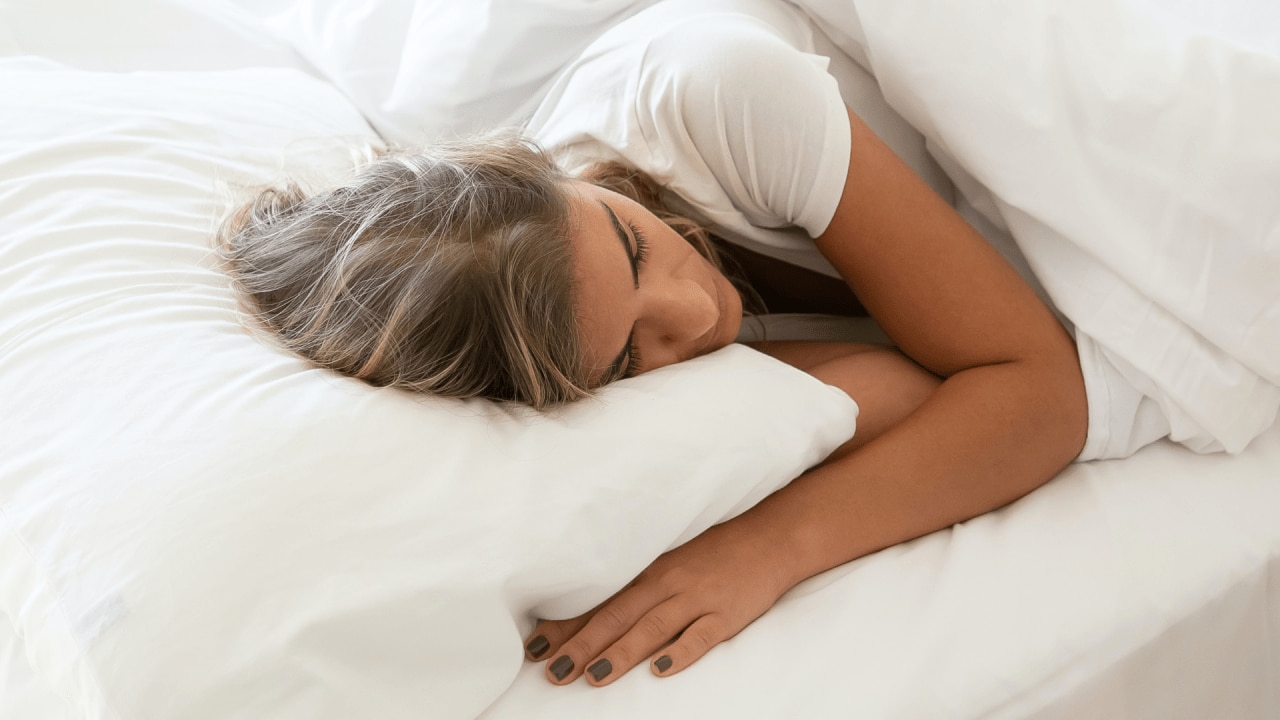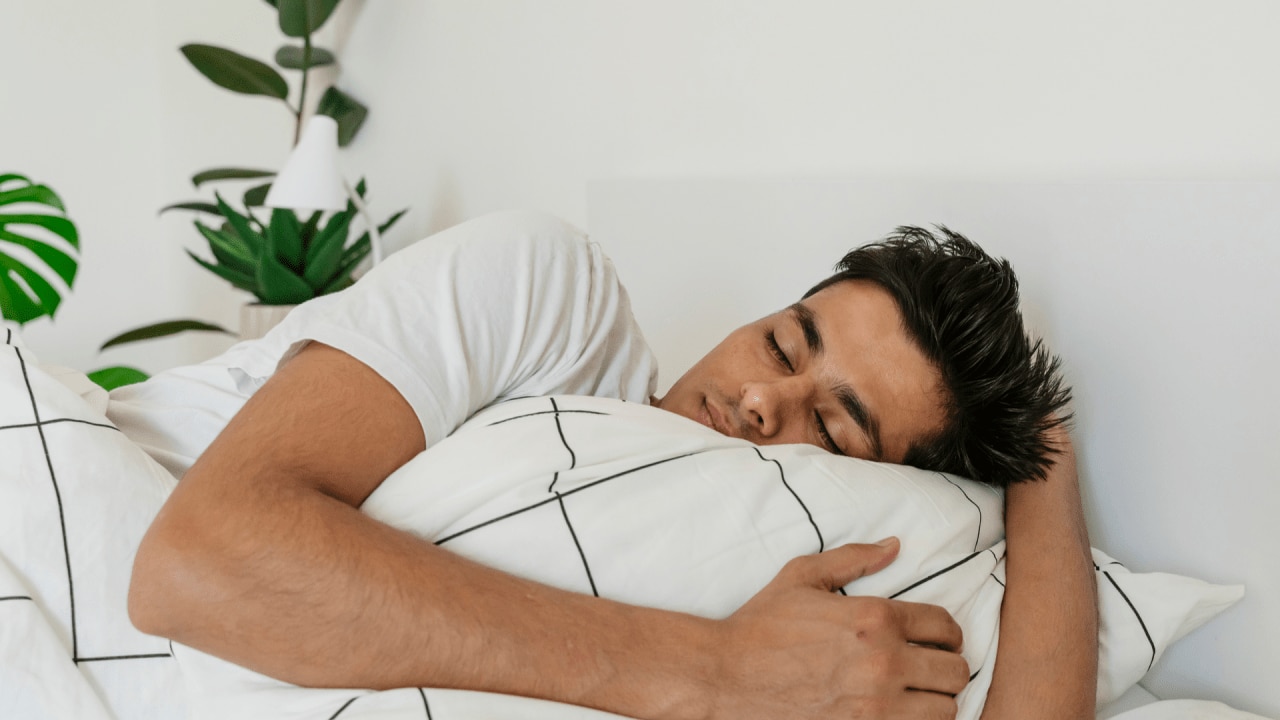How vaping can impact the quality of your sleep
Another reason to ditch the vape

With the detrimental effects of vaping well-established, it's little wonder anyone still does it. However, if you are still partial to an e-cigarette, it could be having a negative effect on more than just your lungs.
When e-cigarettes first hit the scene, a lot of us got caught up in the marketing — believing that they were just a healthier alternative to traditional cigarettes — but since then, it’s become clear that is not really the case.
Scientists are now discovering a bunch of side effects, but the one that surprised us the most is how it can affect your sleep.
Here, we cut through the smoke and break down the connection between vaping and sleep health with expert help from Dr Vincent Mok, a GP at Pilot.
Like what you see? Sign up to our bodyandsoul.com.au newsletter for more stories like this.
Does smoking affect sleep?
The short answer is yes, smoking affects your sleep quality, and there are many reasons why this happens.
“Nicotine can have a direct negative effect on sleep structure and acts as a stimulant that inhibits sleep,” Dr Mok explains.
It can increase your heart rate and blood pressure, and make you more alert — the opposite of what you want when it’s time to sleep. It also stimulates the parts of your brain that are related to your sleep-wake cycle, making it more likely for your sleep patterns to be disrupted.
If that’s not enough, withdrawals from nicotine can come on pretty quickly, likely when you're trying to sleep, which explains why insomnia is a key nicotine withdrawal symptom.
Dr Mok also adds that “Over time, smoking can cause health problems of which insomnia and disordered sleep may be potential symptoms. Examples include heart disease, emphysema, chronic bronchitis, stroke, and blocked arteries causing pain.”

Is there a link between vaping and poor sleep?
Once again, the answer is yes, there is a link between vaping and poor sleep.
While e-cigarettes are often advertised as 'not as bad’ as regular cigarettes and as a way to quit smoking, things aren’t all that simple.
“Vapes that contain nicotine also have a negative effect on sleep, similar to combustible cigarettes. Studies have shown that young adults who used e-cigarettes were more likely to report sleep deprivation,” Dr Mok explains.
And not even ‘casual vapers’ are immune to this, with research showing that people who only started vaping occasionally still experienced sleep issues.
Add to this the accessibility of vaping and it becomes an even bigger problem. Vapes are more convenient, portable, and quicker to use than regular cigarettes, which can lead to a higher daily nicotine intake and, consequently, poorer sleep quality.
Can vaping cause sleep apnoea?
We’re sure by this point that you can guess the answer to this one. Yes, it can.
“The link between smoking and obstructive sleep apnoea is well established. Smoking causes inflammation of the upper airways, disrupts the function of the nerves and muscles that keep the airways open, and alters sleep structure,” Dr Mok explains.
“Nicotine in vapes can cause similar issues and contribute to sleep apnoea. Furthermore, vaping can worsen or cause conditions such as diabetes, high blood pressure, strokes, and heart attacks, which are also associated with sleep apnoea.”

How can you improve your sleep?
“Quitting smoking or vaping can ultimately improve sleep, even though initially the withdrawal symptoms may worsen it.”
Additionally, Dr Mok has a number of sleep hygiene tips that will help you rest better as you ditch the habit:
- Make sure your bedroom is reserved for sleep and intimacy only.
- Keep the bedroom cool and dark with block-out curtains.
- Avoid caffeine after midday.
- Follow your body clock by sleeping and waking at the same time every day, including holidays and weekends.
- Train your mind to relax before sleep by practising mindfulness and meditation.
- Avoid vigorous exercise too close to bedtime.
- Avoid staying in bed if you can’t get to sleep.
- Try a formal sleep improvement program such as This Way Up’s Insomnia Program.
“If the above methods do not work, it is important to see your GP to exclude serious health issues – like obstructive sleep apnoea, thyroid dysfunction, diabetes, etc – that could be affecting sleep. Also, if safe to do so, your GP may recommend medication or other tools (e.g. light therapy) that may assist with regulating the body clock,” he recommends.
More Coverage
Originally published as How vaping can impact the quality of your sleep





